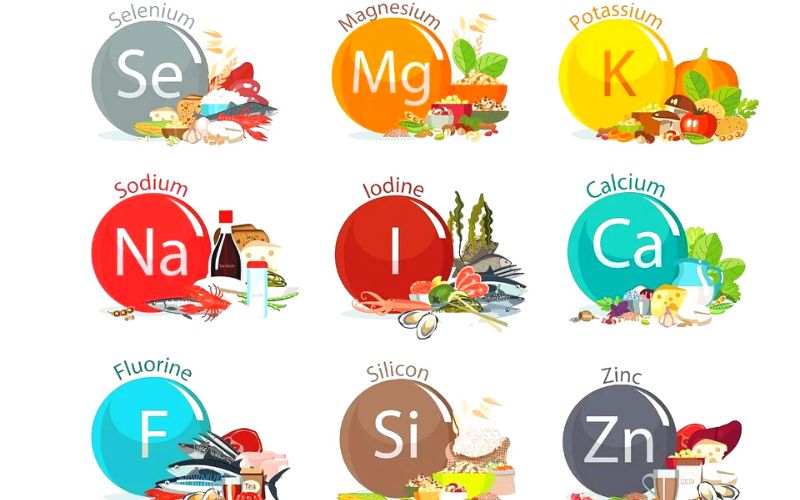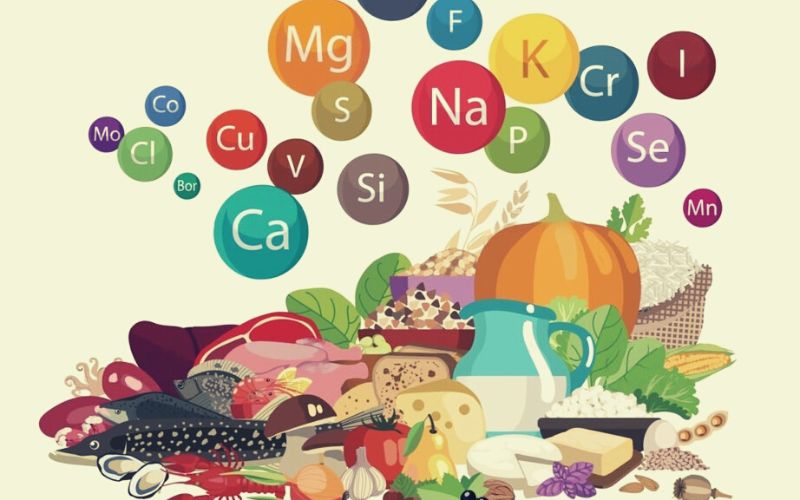A balanced diet is essential for everyone, but did you know that a balanced diet is thru up of metals? Dietary metals are integral to many bodily functions, and some metals significantly improve health and well-being. Indeed, certain metals activate enzymes that facilitate various bodily functions; However, finding the right balance is crucial.
For example, copper and zinc support a robust immune system, but excessive amounts of zinc can lead to copper deficiency. Meanwhile, overeating calcium can prevent your body from absorbing magnesium. Fortunately, however, obtaining too many metals through diet alone is extremely difficult.
Table of Contents
Daily Consumption Requirements

Metals required for our health are typically obtained solely through food consumption. These metals include zinc, sodium, potassium, molybdenum, manganese, magnesium, copper, chromium, and calcium. Nonetheless, metals such as potassium, calcium, and iron can be challenging to obtain through diet alone, so you may be attentive or prescribed supplements.
Potassium
The first dietary metal we’ll discuss is potassium, which helps our bodies balance fluids and maintains a steady heartbeat. Although it is often vented compared to magnesium and calcium, it is also necessary for blood pressure regulation and bone formation. Bananas are the most commonly associated with potassium; however, potatoes, broccoli, spinach, beans, and oranges are also good sources of dietary metal.
Magnesium
Magnesium works with calcium to help build teeth and bones. Similarly, magnesium is required to regulate blood sugar levels and blood pressure, as well as transmit signals to the brain. Eat more milk, whole-wheat bread, seeds, peanut butter, soybeans, green vegetables, and almonds to increase your magnesium intake.
Iron
The term “iron deficiency” is frequently used in medical circles and usually refers to someone feeling extremely tired. The irony of the situation is that the only way to solve the problem is to use the internet. Furthermore, iron activates enzymes, facilitating the production of essential hormones, neurotransmitters, and amino acids. If you ever have an iron deficiency, be sure to increase your intake of cereals, fortified bread, pumpkin seeds, turkey, beans, lentils, and red meat.
Calcium
As previously stated, calcium collaborates with magnesium to control blood pressure and build strong teeth and bones. Eat more kale, broccoli, fortified juices, tofu, and dairy products to increase your calcium intake.
Copper and Zinc
You’ve probably heard that zinc supplements are beneficial when preparing your body to fight off colds and viruses. Regardless, taking zinc supplements may have the opposite effect that you intended. The word “struggle” refers to attempting to elicit a response from a person suffering from a stutter.
Sodium
We need about 2.4g of sodium daily, but the average American consumes up to 3.4g daily. This increased sodium intake can lead to high blood pressure, making you more vulnerable to strokes and heart attacks. It isn’t to say you should eat many bananas to compensate for sodium-rich processed foods. It all comes down to balance.
If you suspect you are deficient in essential metals, seek medical attention immediately. If you begin taking metal supplements without consulting a doctor, you risk causing an imbalance.
Also read: Serum Vitamin C
Also read: Healthy Weight







